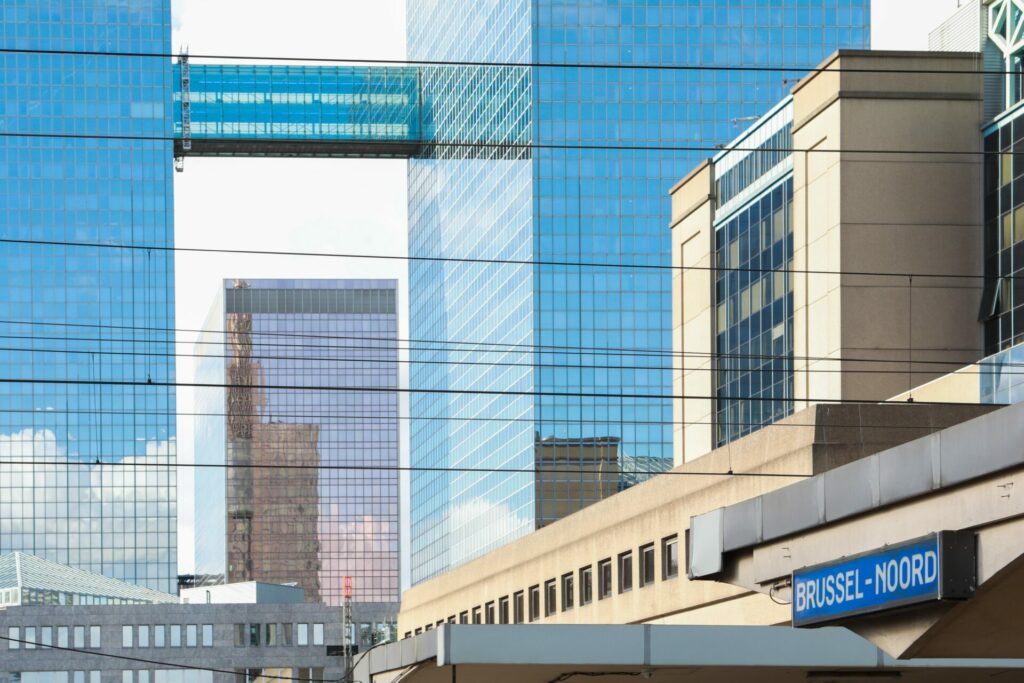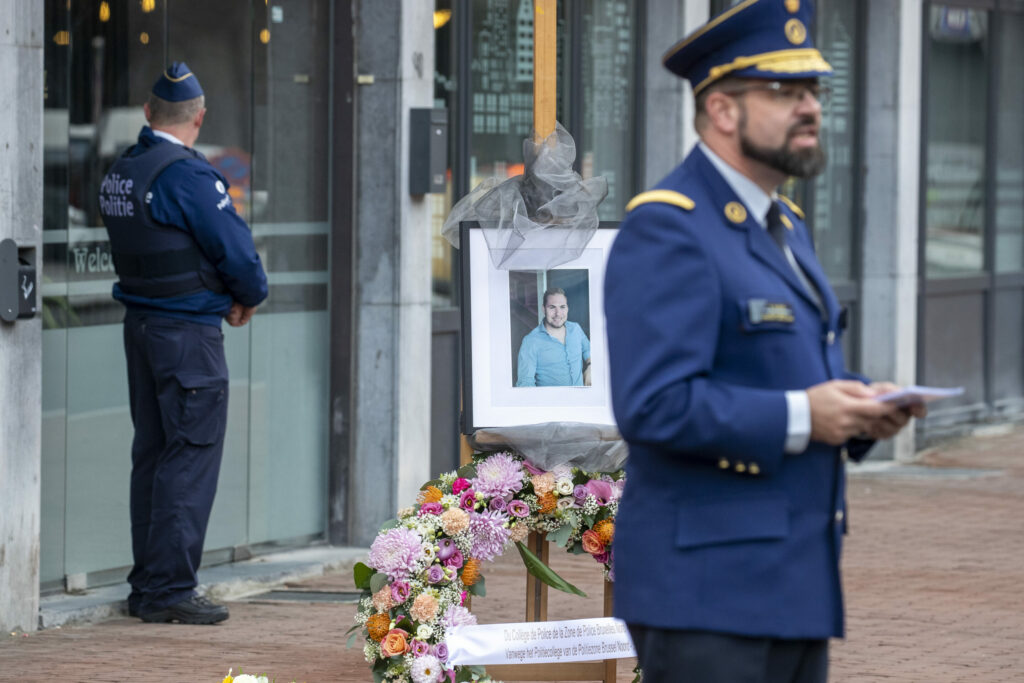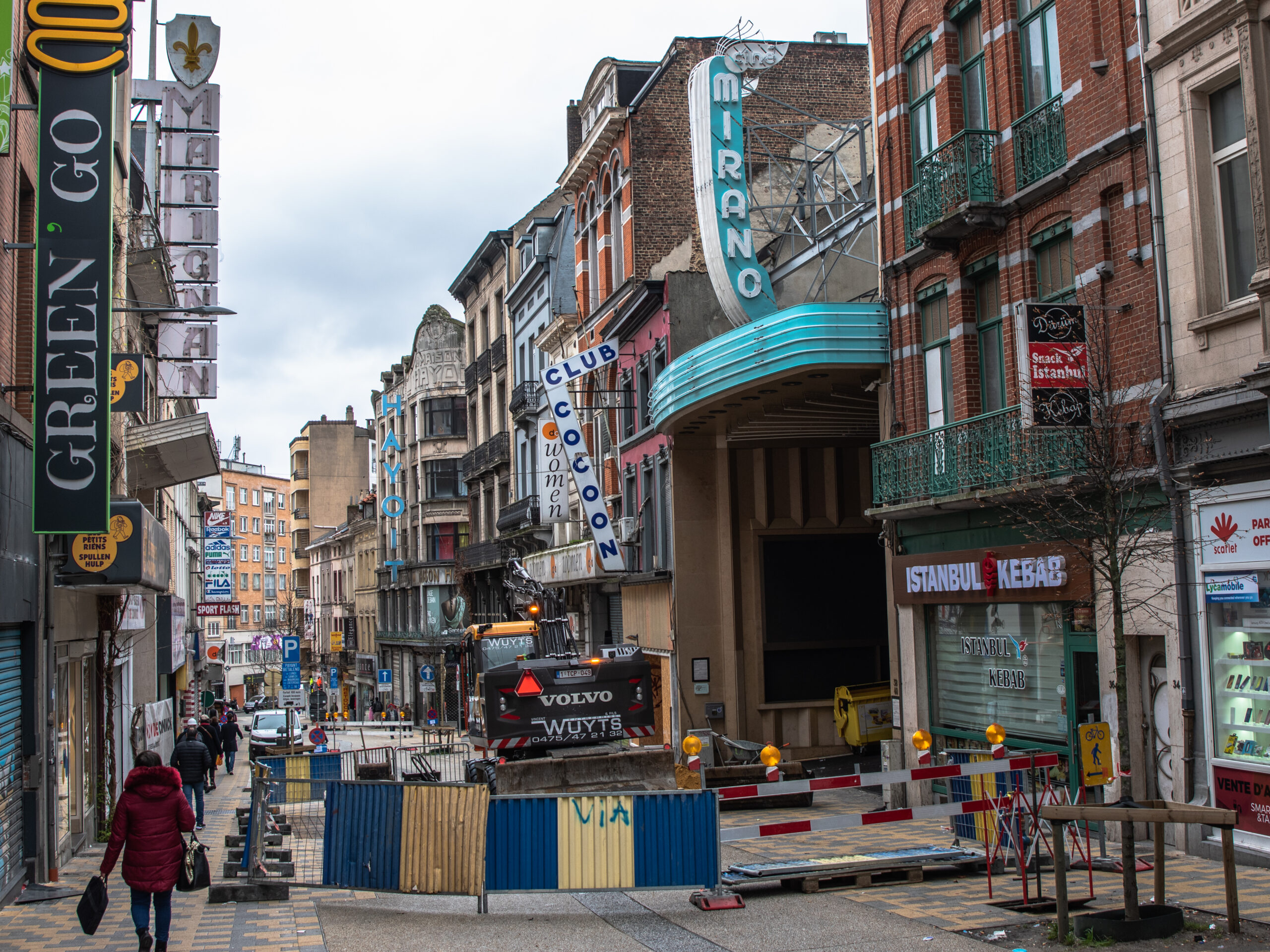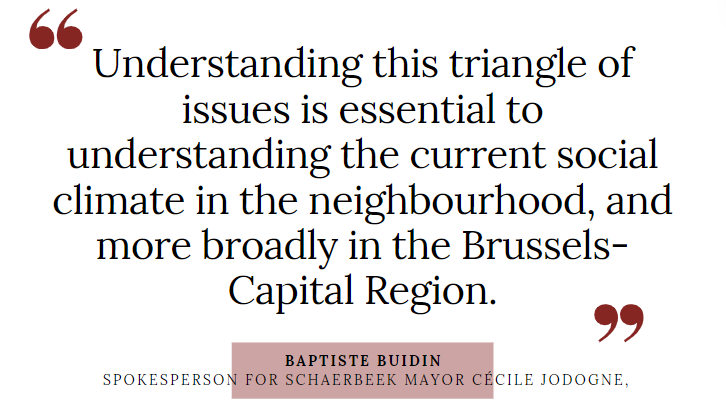With drug-related crime in Brussels reaching record levels, the feeling of insecurity in the Northern Quarter has only increased since the death of a police officer 1.5 years ago. Now, local authorities are shifting their approach by addressing the causes and consequences of addiction and mental health issues in the public space to improve safety.
The Northern Quarter, the neighbourhood in the municipalities of Schaerbeek and Saint-Josse-ten-Noode around the Brussels North railway station, is best known for being the Brussels office district. The mono-functional nature of the neighbourhood, with high-rise workplaces on every street, has long had a history of precariousness, crime, homelessness and drug use.
"In the district, mental health issues, drugs and poverty are very clearly linked to each other," Baptiste Buidin, spokesperson for Schaerbeek's acting mayor Cécile Jodogne, told The Brussels Times. "When one of the three arises, the other two tend to exacerbate the first. They are both causes and consequences of each other."
"Understanding this triangle of issues is essential to understanding the current social climate in the neighbourhood, and more broadly in the Brussels-Capital Region," he said. "It is not a surprising conclusion, but it highlights the importance of taking measures with this in mind. That is the only way to really help people on the ground."
Obstacles and recommendations
This observation gave rise to the establishment of a local council – the Concertation Nord – which brought together the municipalities of Schaerbeek and Saint-Josse-ten-Noode, the Brussels-North police zone, but also social and health sectors and Safe.brussels. Together, they set out to tackle the issues and drew up a report.
In light of this, they looked into what obstacles stand in the way of public or community action to resolve the issues and found that the limitations of local service provision for the various groups – whether due to lack of staff, lack of joint social work or inaccessibility of second-line services – were a major issue.
Additionally, the difficulties inherent in social and health work, the lack of recognition of these professions, as well as violence against front-line workers were also identified as major obstacles to better and more accessible care.

Northern Quarter seen from Brussels North Train station. Credit: Belga / Paul-Henri Verlooy
"The findings are not tied to one specific level of work, and neither are the recommendations. They are for all levels of government: federal, regional and municipal," said Buidin. "From our side, we are going to take the measures we can take at our level, and spread the ideas in the recommendations to other people and institutions who can help as well."
The police, too, learned lessons from the working group and the report and are taking concrete actions to better deal with the reality of the Northern Quarter, spokesperson for the Brussels North police zone Audrey Dereymaeker told The Brussels Times.
"We knew who the various players around the table were, but we did not necessarily know each other. Therefore, this was important to get to know each other better and to cross-reference our realities, which are often similar," she said. The report was drawn up by "professional players in the field," so now the police will also meet with local residents and shopkeepers.
Working together
Projects are also being launched to train police officers in dealing with mental health issues – "not only in the Northern Quarter, but beyond as well," Dereymaeker said.
"Finally, the last step is to work together rather than next to each other," she said, adding that the recommendations to set up joint working teams (with social workers and police officers) and a multidisciplinary social hub (with an ethical framework so everyone can communicate more effectively) will be taken to heart to "provide a comprehensive response for the population of the Quartier."
However, focusing on security is not the only key to solving the problems associated with drug-related crime, the report showed clearly: a cross-disciplinary approach is needed to tackle the root causes of the problem.
Schaerbeek's Buidin stressed that the municipality is already working on different levels by taking steps to create a local multidisciplinary hub where services for people with mental illnesses or drug issues are brought together. "The goal is to have them all in one place: the police, medical services, psychologists, ...."
Additionally, the municipality is pushing for the opening of a low-risk drug consumption room in the Northern Quarter, similar to Gate near the Brussels Midi station. "The funding depends on the Region, but we really want to work on this project," he said.
All services in the district will also strengthen their street outreach work, as well as so-called "low-threshold" services, to better reach the who are particularly exposed and/or are part of precarious groups.

A remembrance moment for the deceased police officer Thomas Montjoie of the Brussels North Police Zone. Credit: Belga/ Nicolas Maeterlinck
"The work that went into creating this report proved that we can work with all the important players on the ground to tackle this issue," said Buidin. "We want to achieve lasting improvements in safety, quality of life and care for vulnerable groups in the Northern Quarter but we cannot do it alone. We need the collaboration of every person, every association and every institution to be efficient."
As the district was also identified as one of the hotspots in Brussels-Capital Region's policy to combat crime linked to drug trafficking, it is hoped that any measures for the district will be taken with the conclusions of the report in the back of the mind. That way, actions can be supplemented with targeted measures adapted to the specific and unique reality of the district.
"All the parties around the table – the police, the authorities, help organisations – are convinced that the neighbourhood life and prevention are essential pillars if we want to find structural and sustainable responses to these issues," Buidin said.


